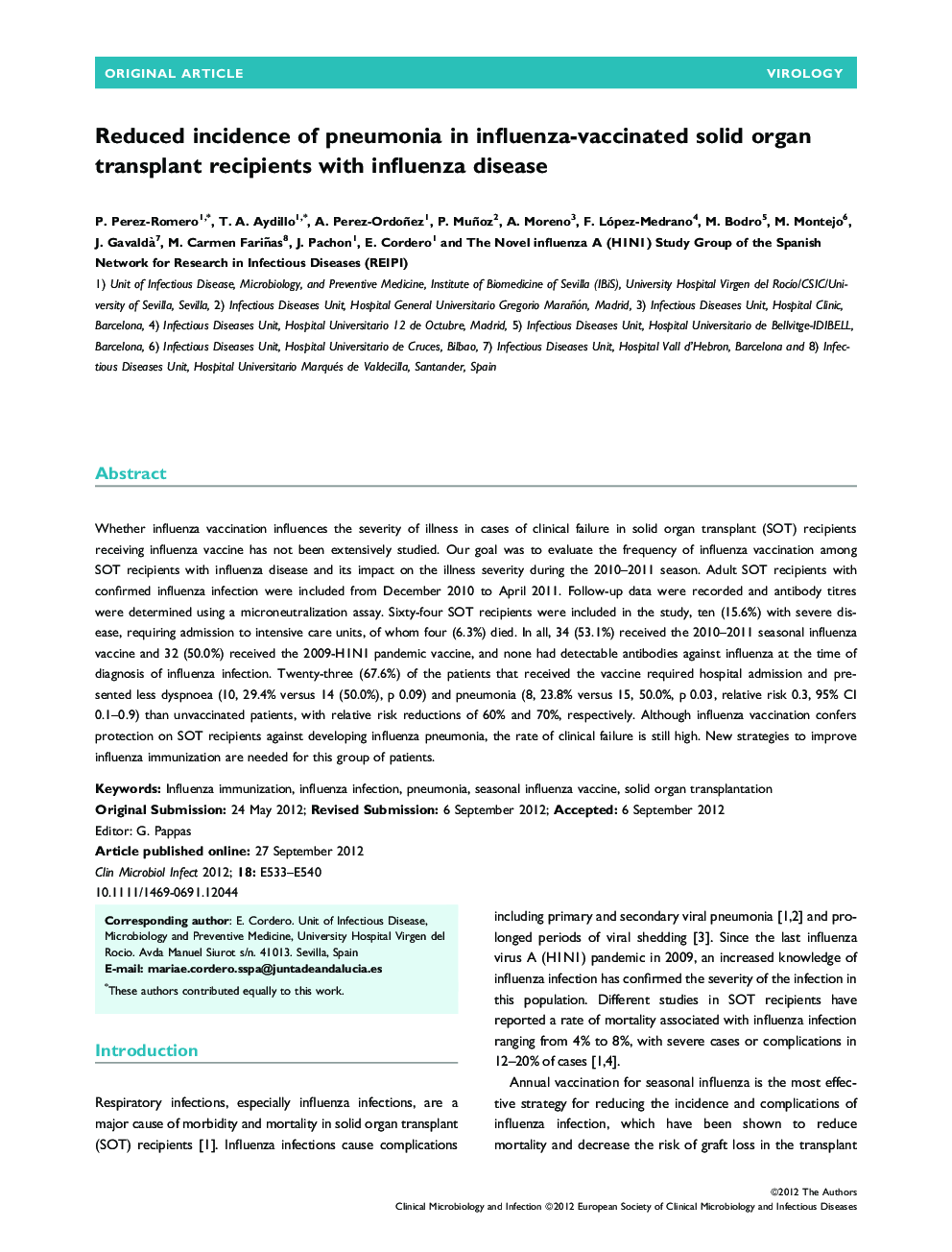| Article ID | Journal | Published Year | Pages | File Type |
|---|---|---|---|---|
| 6130726 | Clinical Microbiology and Infection | 2012 | 8 Pages |
Abstract
Whether influenza vaccination influences the severity of illness in cases of clinical failure in solid organ transplant (SOT) recipients receiving influenza vaccine has not been extensively studied. Our goal was to evaluate the frequency of influenza vaccination among SOT recipients with influenza disease and its impact on the illness severity during the 2010-2011 season. Adult SOT recipients with confirmed influenza infection were included from December 2010 to April 2011. Follow-up data were recorded and antibody titres were determined using a microneutralization assay. Sixty-four SOT recipients were included in the study, ten (15.6%) with severe disease, requiring admission to intensive care units, of whom four (6.3%) died. In all, 34 (53.1%) received the 2010-2011 seasonal influenza vaccine and 32 (50.0%) received the 2009-H1N1 pandemic vaccine, and none had detectable antibodies against influenza at the time of diagnosis of influenza infection. Twenty-three (67.6%) of the patients that received the vaccine required hospital admission and presented less dyspnoea (10, 29.4% versus 14 (50.0%), p 0.09) and pneumonia (8, 23.8% versus 15, 50.0%, p 0.03, relative risk 0.3, 95% CI 0.1-0.9) than unvaccinated patients, with relative risk reductions of 60% and 70%, respectively. Although influenza vaccination confers protection on SOT recipients against developing influenza pneumonia, the rate of clinical failure is still high. New strategies to improve influenza immunization are needed for this group of patients.
Keywords
Related Topics
Life Sciences
Immunology and Microbiology
Microbiology
Authors
P. Perez-Romero, T.A. Aydillo, A. Perez-Ordonez, P. Mufioz, A. Moreno, F. Lopez-Medrano, M. Bodro, M. Montejo, J. Gavalda, M. Carmen Fariñas, J. Pachon, E. Cordero,
